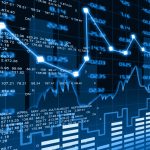Artificial intelligence is disrupting global industries and workforces, but it may also set in motion an entirely new economy.
Although the idea of AI dates to the mid-1900s, the technology catapulted into common discourse after the launch of OpenAI’s generative AI chatbot, ChatGPT, in November 2022.
“But [generative AI] isn’t just another invention,” said Aneesh Raman, chief economic opportunity officer at LinkedIn. “It’s a turning point, forcing us to rethink not just what work is, but what it means to be human at work.”
‘The knowledge economy is on the way out’
Similar to the Industrial Revolution, AI is pushing us into a new era, said Raman.
“For centuries, work was about our physical abilities on farms, and then again in the factories,” said Raman. “It’s only been the past couple decades that work has been about our intellectual abilities.”
A new economy is on the way … the innovation economy.
Aneesh Raman
Chief economic opportunity officer, LinkedIn
Now the rise of AI is sparking a new discussion: If automation takes over more physical tasks and artificial intelligence takes over more intellectual ones, humans will be defined by their social abilities, said Raman.
“The knowledge economy is on the way out, and a new economy is on the way for us humans at work,” he said. “I’m calling it the innovation economy.”
In this new era, “human innovation and our uniquely human skills, like social and emotional intelligence” will be key, he added.
Skills such as creativity, curiosity, courage, compassion and communication — or “the 5 C’s” — are what underpin innovation, allowing us to come up with new ideas that challenge the status quo, collaborate, and ultimately build together, he said.
AI unlocks innovation
AI also stands to democratize innovation in a way we’ve never seen before, said Raman.
“The systems of work have traditionally privileged pedigree over potential — very few humans across history have had the right credentials and the right connections to get access to the capital they needed to turn ideas into inventions,” he said.
A research paper by economist Raj Chetty along with other researchers, coined the term “lost Einsteins” to describe potential innovators who are limited by their socioeconomic status.
The paper, which compared tax and school district records of more than one million patent holders in the U.S., found that children with parents in the top 1% of the income distribution were ten times more likely to become inventors than children of parents with below median income.







